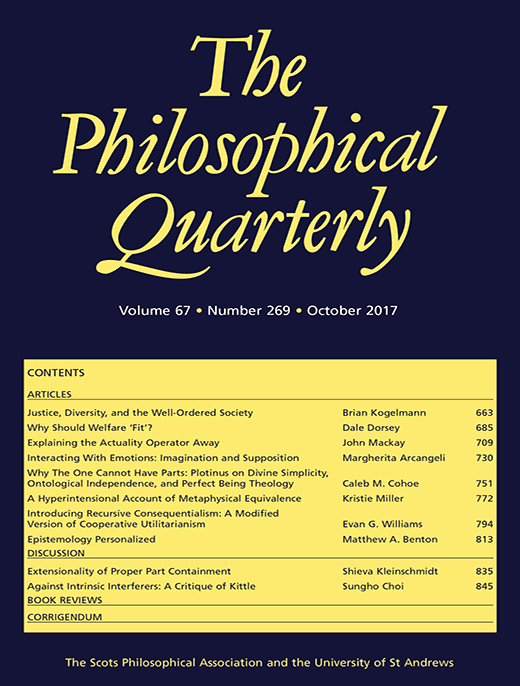-
Views
-
Cite
Cite
Caleb M. Cohoe, Why the One Cannot Have Parts: Plotinus on Divine Simplicity, Ontological Independence, and Perfect Being Theology, The Philosophical Quarterly, Volume 67, Issue 269, October 2017, Pages 751–771, https://doi.org/10.1093/pq/pqx008
Close - Share Icon Share
Abstract
I use Plotinus to present absolute divine simplicity as the consequence of principles about metaphysical and explanatory priority to which most theists are already committed. I employ Phil Corkum's account of ontological independence as independent status to present a new interpretation of Plotinus on the dependence of everything on the One. On this reading, if something else (whether an internal part or something external) makes you what you are, then you are ontologically dependent on it. I show that this account supports Plotinus’ claim that any entity with parts cannot be fully independent. In particular, I lay out Plotinus’ case for thinking that even a divine self-understanding intellect cannot be fully independent. I then argue that a weaker version of simplicity is not enough for the theist since priority monism meets the conditions of a moderate version of ontological independence just as well as a transcendent but complex ultimate being.





